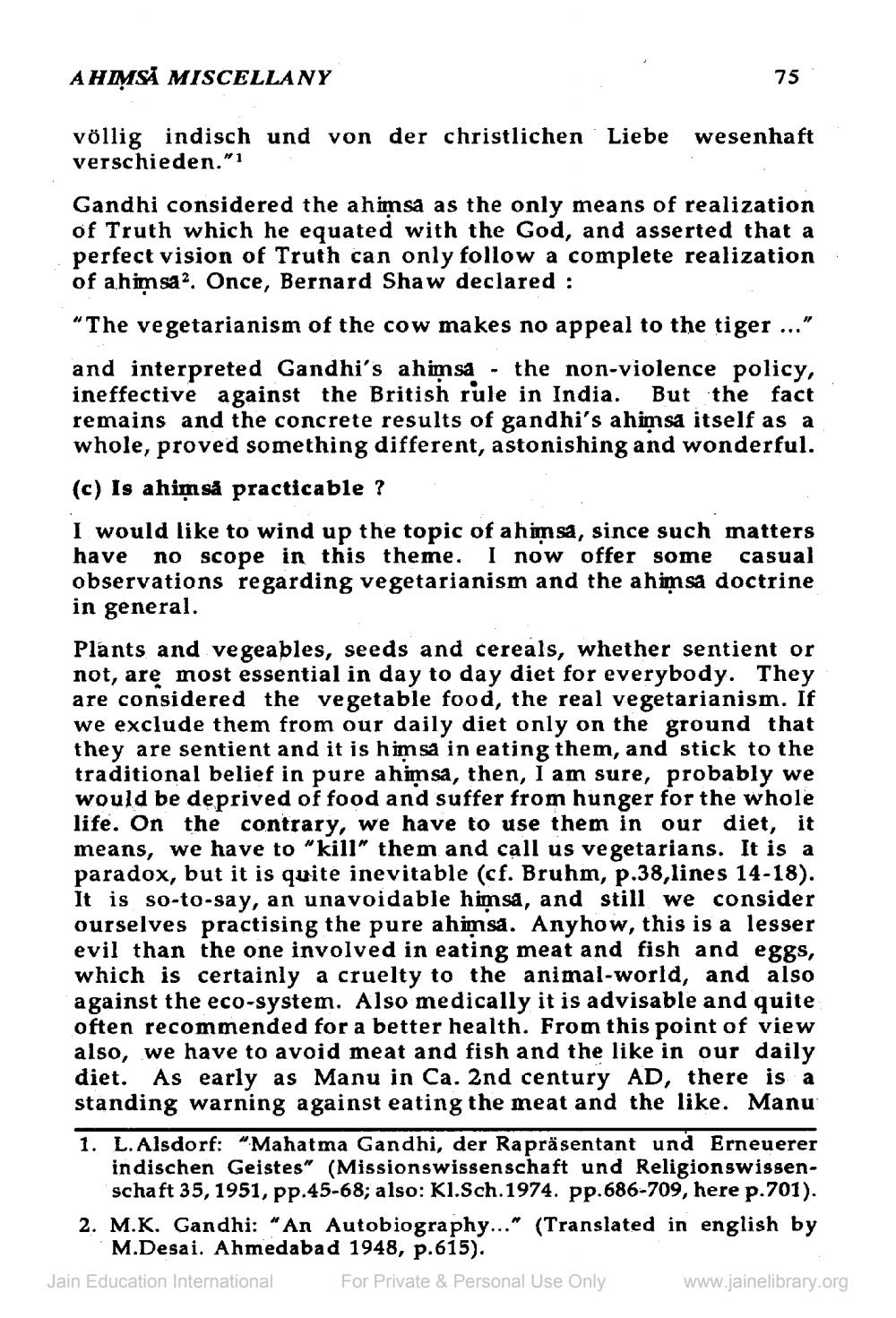________________
AHIMSA MISCELLANY
75
völlig indisch und von der christlichen Liebe wesenhaft verschieden."1
Gandhi considered the ahimsa as the only means of realization of Truth which he equated with the God, and asserted that a perfect vision of Truth can only follow a complete realization of a hissa. Once, Bernard Shaw declared : "The vegetarianism of the cow makes no appeal to the tiger ..." and interpreted Gandhi's ahimsa - the non-violence policy, ineffective against the British rule in India. But the fact remains and the concrete results of gandhi's a himsa itself as a whole, proved something different, astonishing and wonderful.
(c) Is ahim så practicable ?
I would like to wind up the topic of ahimsa, since such matters have no scope in this theme. I now offer some casual observations regarding vegetarianism and the ahimsa doctrine in general.
Plants and vegeables, seeds and cereals, whether sentient or not, are most essential in day to day diet for everybody. They are considered the vegetable food, the real vegetarianism. If we exclude them from our daily diet only on the ground that they are sentient and it is himsa in eating them, and stick to the traditional belief in pure ahimsa, then, I am sure, probably we would be deprived of food and suffer from hunger for the whole life. On the contrary, we have to use them in our diet, it means, we have to "kill" them and call us vegetarians. It is a paradox, but it is quite inevitable (cf. Bruhm, p.38, lines 14-18). It is so-to-say, an unavoidable himsa, and still we consider ourselves practising the pure ahimsa. Anyhow, this is a lesser evil than the one involved in eating meat and fish and eggs, which is certainly a cruelty to the animal-world, and also a gainst the eco-system. Also medically it is advisable and quite often recommended for a better health. From this point of view also, we have to avoid meat and fish and the like in our daily diet. As early as Manu in Ca. 2nd century AD, there is a standing warning against eating the meat and the like. Manu 1. L. Alsdorf: "Mahatma Gandhi, der Rapräsentant und Erneuerer
indischen Geistes" (Missionswissenschaft und Religionswissen
schaft 35, 1951, pp.45-68; also: K1.Sch. 1974. pp.686-709, here p.701). 2. M.K. Gandhi: "An Autobiography..." (Translated in english by
M.Desai. Ahmedabad 1948, p.615). Jain Education International For Private & Personal Use Only www.jainelibrary.org




